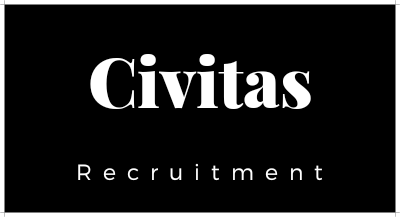Five practical tips to help you prepare for your next interview
Whether you love them or hate them, interviews are a necessary step in advancing your career. And, regardless of which side of the fence you sit on, or how much interview experience you have, there are some easy wins that can take you from a novice to a natural. Next time you’re preparing for an interview, keep these five tips in mind:
#1 Do the groundwork
If there’s a job you’re dead set on, show how much you want it – an easy way to demonstrate this is by doing your research. Read up on the charity’s mission and purpose, and make sure that it aligns with your core values. You can also search the register of charities to find out more about what the charity does, the trustees, and any relevant financial information. And if you know who’s interviewing you, take a look at them on LinkedIn first so you can find out about their role and background. Being armed with this knowledge means you can enter the interview with confidence and talk authentically about why the job appeals to you.
#2 Prepare your elevator pitch
It’s likely that, before you get into the heart of the interview, you’ll be asked to tell the interviewer(s) a bit about yourself. Rather than cobbling something together on the spot, take the time beforehand to prepare your elevator pitch. Think of this as a summary of your CV in no longer than a couple of minutes, pulling out any key achievements or career highlights relating to the role. You could also take this time to show off some of your research, talking about how the charity’s cause speaks to you, and what you believe you could bring to the role.
#3 Have some examples up your sleeve
The bulk of your interview will be made up of competency-based questions that give you the opportunity to share specific examples of where you’ve faced a particular challenge, and how you’ve used your skills to overcome it. These questions will be tailored to the Job Description so that the interviewer(s) can make sure you meet the essential criteria for the role, based around a variety of themes, such as teamwork, time management, project management, or conflict resolution. The best way to prepare for this is to think of a variety of examples that you can speak to, and then draw from this bank to answer the questions you’re asked on the day. When sharing your example, consider applying the STAR method, to give some structure around your answer (situation, task, action, result).
#4 Take care of yourself
You’ll want to be on top form for your interview so that you can give it your best shot. To avoid unnecessary stress, take control of the things that are within your remit, such as asking the recruiter what format the interview will take and if there will be any additional tests or presentations. Make sure you plan your journey in advance so that you allow plenty of time to get where you need to be – or, if the interview is online, download Teams/Zoom and test your camera and audio beforehand. Lastly, get your prep and practice in nice and early so that you can have a good night’s sleep and attend your interview feeling refreshed, rested, and ready to impress.
#5 Remember, it’s a two-way process
When preparing for an interview, it’s easy to focus solely on preparing answers, but it’s also important to prepare questions too. You’re not the only one being interviewed; you need to make sure that the job lines up with what you are looking for – so think about what you want to know. You won’t be penalised for taking a notebook into the interview with you, so if it helps take the pressure off to write down some questions in advance, go for it. And remember, asking certain questions can help position you as a desirable candidate too, for example asking how your development will be supported shows someone who is ambitious and wants to progress within the charity.
We hope these tips will stand you in good stead for your next interview. If you’d like to discuss your next career move with us, please get in touch.
Related posts
How to draft an authentic and appealing job description – September 2023
The perfect Job Description doesn’t exist…or does it? The first step of successfully filling a role is to write a Job Description, or JD – this will be posted on the charity’s website, featured in job adverts, or possibly sent to you by your recruiter. The aim of the JD is to sell the role…
Five practical tips to help you prepare for your next interview – July 2023
Five practical tips to help you prepare for your next interview Whether you love them or hate them, interviews are a necessary step in advancing your career. And, regardless of which side of the fence you sit on, or how much interview experience you have, there are some easy wins that can take you from…
The Law of Attraction: How to recruit and retain high-calibre talent – July 2023
It’s no surprise that, in recent years, UK businesses are experiencing difficulty recruiting employees with relevant skills. With a growing number of vacancies and, simultaneously, a shortage of suitable candidates to fill them, we understand the anxiety that many small firms are facing in the current job market. We have seen this first-hand in the…


